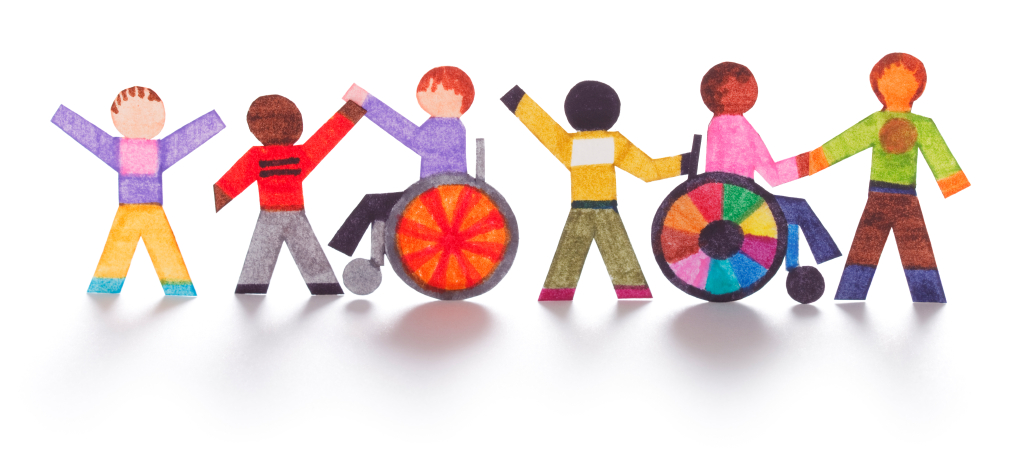“Inclusion is not tolerance. It is unquestioned acceptance.”
Inclusive education for kids with special needs means to educate them in a mainstream school instead of a special needs school. Although most special needs children go to a special school, an inclusive approach has many benefits.
But when it comes to having a special needs child in a regular classroom, there are some popular public opinions. Like,
“Special needs kids go to special needs school.”
“To ensure personal attention, separation of special needs kids is better”
“Special education means separate education”
With the growing awareness and legal rights ensured to special needs kids, we now know that these are merely some age old myths.
Today, let’s first burst some of the misleading facts about educating special needs children in mainstream schools. We then talk about the benefits of inclusive education for special needs kids.
Myths v/s Facts about Inclusive Education
1. IT IS A MYTH
That the child will get personal attention of teachers only in a Special Needs School.
THE TRUTH IS
There are specific services that can help your special needs child in a regular classroom. (Read along to know more). Moreover, a regular classroom environment exposes your child to the general atmosphere in which s(he) will face post schooling.
2. IT IS A MYTH
That special needs kids being in a mainstream classroom disturbs other students.
THE TRUTH IS
There may be some adjustment issues between kids initially. But schools make provisions to ensure that the quality of education and the classroom environment remains intact.
3. IT IS A MYTH
That teachers in regular school are under trained to handle special needs children.
THE TRUTH IS
School teachers are now compulsorily trained to include special needs children in classrooms. Training is also given to be sensitive to their needs and to avail external help, if the concerns are severe.
Benefits of Inclusive Education:
1. Modeling
It’s been proved that placing a special needs child with those without disabilities has significantly positive social and academic effects. It goes without saying that children without disabilities act as models for those with specific concerns. They imitate the behaviors of their friends which in turn helps them learn social skills of talking and behaving ‘normally’. Isn’t that the ultimate goal of everyone associated with a special needs child?
So a child with Autism learns to take permissions before entering the class when he sees others do the same.
A child with Learning Disability is motivated to finish the class work and get a star as her friends do.
Even small things like walking in a line or sharing lunchbox gets imitated by special needs kids. Our goal of making them more independent and functional then doesn’t seem very far.
2. Everyone Learns :
Another benefit of inclusive education of special needs children is that it is a two way process. Kids without disabilities are, at a very early age, sensitized to individuals who are ‘different’. Kids understand that it is okay if their ‘special’ friend talks loudly to them. Having learnt in such an inclusive classroom, they do not fall prey to the stigmatizing voices of others. They are also more willing to actively help special needs populations.
For the special needs child, being in a normal classroom is in itself a major learning experience. It is only fair to expose them to the same level of education and rights from the beginning as others.
Even teachers observe the interaction the kids have among themselves and learn about the needs of kids with specific concerns. They over time learn to help special children better in the school setting.
3. Equal Rights to Education:
The RTE Act, 2012, states:
All children, regardless of their impairment, should be educated in mainstream schools, till 18 years of age.
(To know more about the RTE, visit http://righttoeducation.in/media/news/2014/10/14/children-learn-better-with-inclusive-education)
There has been a rapid increase in Inclusive schools recently. But there are a lot of difficulties that special children in mainstream schools face. For example, lack of flexibility in curriculum, infrastructure, being bullied in class, not getting adequate attention from the teachers etc.
Regardless, there remains a large number of special children trained in mainstream schools who are doing comparatively well. So, the parents of special needs kids might have to do a bit of school hopping initially. But it will pay off well to have your child educated in a normal school.
Ensure special attention at school
Often, special needs kids are accompanied by Shadow teachers at school.
A Shadow Teacher sits right next to a special needs kids throughout the school hours. They use various psychologically tested teaching methods to tune teaching as per the child’s mode of learning. In addition, they are sensitive to the child’s difficulties and aim to help them with academic as well as social and behavioral concerns.
How can Starlit Ability Enhancement Services help?
Director of Starlit Services, Mrs. Soumya Bhatt, is also a Director at SRV Schools which runs 2 inclusive schools in Ahmedabad. This experience gave a tremendous insight into kids with special needs. Therefore, she understands how difficult it could get for them and their family if intensive training is not provided.
We, at Starlit Ability Enhancement Services, provide such shadow teaching facilities to kids with various concerns at school and at home. To know more about our services, visit https://www.starlitservices.com/

